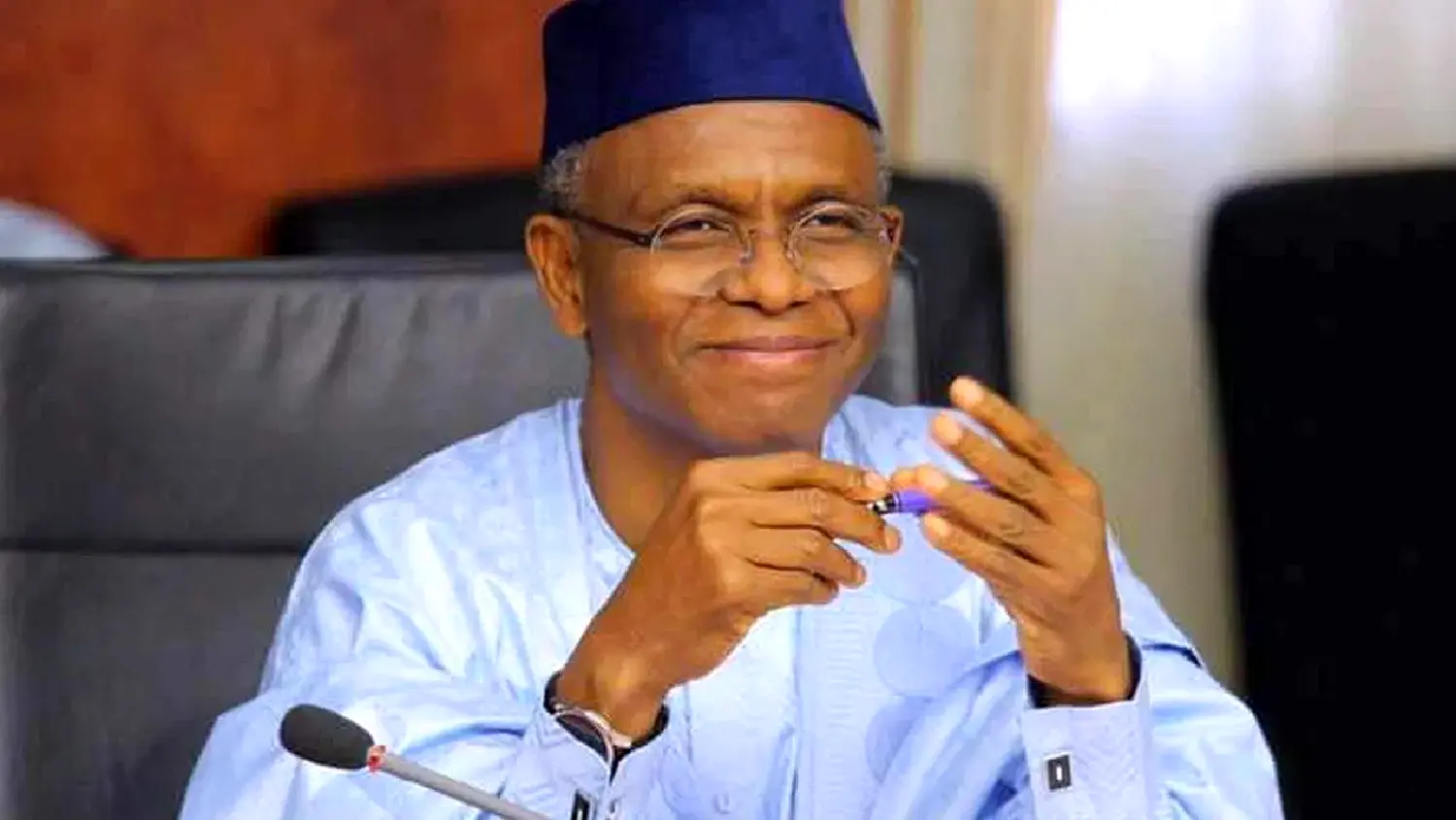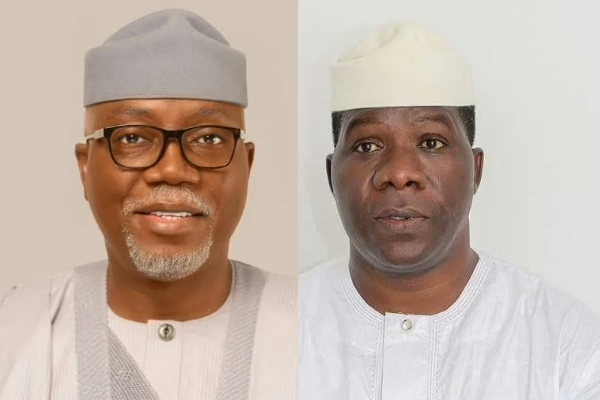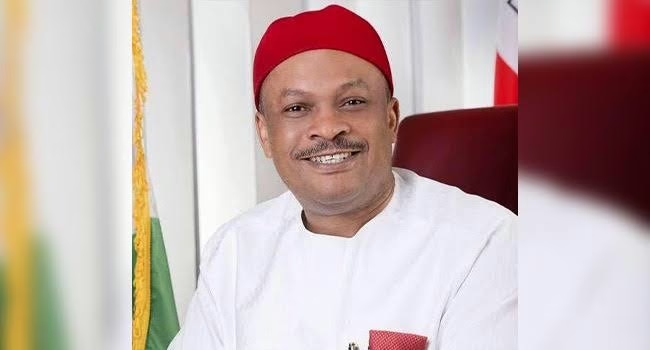By Ibrahim Hassan, Kaduna
Governor Nasir El-Rufai of Kaduna State has presented the 2022 draft budget of N233 billion to Kaduna State House of Assembly, with a capital expenditure of N146 billion and recurrent spending of N87.6 billion.
Giving a further breakdown of the N233billion budget estimate, the governor disclosed that it has a capital to recurrent ratio of 63% : 37%.
El Rufai noted that the 2022 estimates are slightly smaller than the 2021 budget of N237.52bn, which had N157.56bn as capital and N79.96bn recurrent expenditure, a 66% to 34% capital to recurrent ratio.
He further said that the priorities of the 2022 estimates are on Education, Healthcare and Infrastructure, like previous budgets.
Speaking during the presentation of the draft budget on Tuesday, El Rufai pointed out that the allocations in the 2022 budget estimates reflect the political values and governance principles that have consistently guided the six previous budgets that his government has presented since 2015.
“Most of the capital spending will be in the Economic and Social Sectors, in keeping faith with our stated governance agenda. We propose to devote 76.8% of the capital budget to schools, hospitals, and infrastructure, including housing. Capital spending on Education is N68.4bn (29%) and for Health N35.1bn (15%),’’ he said.
According to the governor, ‘’these figures show that the 2022 draft budget estimates express our political values and governance principles in the same consistent manner as our six previous budgets.
‘’ Devoting N115bn to these critical sectors demonstrates continuity in our emphasis on Education and Health as the key drivers of human capital development, and on investments in Infrastructure as essentials to promoting economic competitiveness, support job creation and advance the well-being of our people,’’ he argued.
Justifying the allocations, El Rufai said that they will ‘’ensure that the urban renewal programme, the largest ever infrastructure investments in Kaduna state will be completed, along with initiatives in the health and education sectors.’’
Recalling some of the achievements of the last six years, the governor expressed appreciation to the Kaduna State House of Assembly for the close partnership that has enabled the government to innovate and drive progressive outcomes in the state.
“It is with your kind support that we have the necessary legislation to anchor our governance innovations. Enacting the Kaduna State Independent Electoral Commission (KADSIECOM) law has enabled our state to introduce a revolution in Nigeria by adopting electronic voting for the local government elections of September 2021 and May 2018,’’ he said.
According to him, the KADSIECOM law is among the over 100 new laws enacted since 2015 to institutionalise reforms in public finances, procurement, taxation, child welfare and protection, investment promotion, scholarships, youth capacity building and residency, among others.
The governor further said that his administration has ‘’ also focused on maintaining our credentials as one of the foremost investment destinations in Nigeria, attracting $2.8bn in investments and pledges.’’
‘’ We recently hosted the sixth edition of the Kaduna Economic and Investment Summit, KADInvest. This concluded with the commissioning of the tomato processing plant of Tomato Jos, one of the investors in the agriculture sector in our state,’’ he added.
El Rufai said that the government is looking forward to the commissioning of the Gujeni iron and steel plant of the African Natural Resources and Mines in Kagarko LGA early in 2022.
‘’We also expect the Dangote-Peugeot vehicle assembly project and the OCP fertiliser plant located along the Kaduna-Abuja Road to come on stream,’’ the governor also promised.
According to him, ‘’work is progressing well on the roads, bridges and other infrastructure required for the Damau Milk Farm project, a collaboration between our state, the Central Bank of Nigeria and Arla, the European dairy giant.’’
‘’This is a ranching project, designed to help transform and modernise livestock production in Kaduna state, by sedentarising farmers and involving them in a commercially viable animal husbandry business,’’ he added.
The governor who noted that his administration launched the Urban Renewal Programme in June 2019, described it as ‘’an unprecedented investment in urban infrastructure that is changing Kaduna, Kafanchan and Zaria.’’
‘’We have built, upgraded and expanded infrastructure in these cities as part of a coordinated effort to improve the economic competitiveness of our state and increase its appeal as a place to live, work and rest,’’ he added.
El Rufai said that ‘’without hiking tax rates, Kaduna state has become a top five state for Internally Generated Revenue in Nigeria, collecting N50.7bn in taxes and levies in 2020. This is almost four times the N13bn that the state collected as IGR in 2015.’’
‘’ We have increased school enrolment, made education free and compulsory for all children till they complete senior secondary school and launched a multicampus system for all our state-owned tertiary institutions.
‘’We have reformed the scholarship system to reward merit and support the needy. We are implementing a more sustainable funding arrangement for tertiary education based on a partnership between the government, parents and students,’’ he added.
According to the governor, his administration expanded access to Education, making the first 12 years of schooling free and compulsory, saving parents over N3bn yearly in fees by making basic education free.
“We recently recruited 7, 600 new teachers for secondary schools, in addition to the 2,500 teachers of English, Mathematics and the sciences earlier recruited. We continue to monitor the performance of the 25,000 recruited in 2017 and 2018 to replace the 22,000 who failed the competency test,’’ he added.
The government has revamped the scholarship system, by increasing allowances to those entitled based on either merit or need, he said, adding that ‘’we also introduced a low-interest loan scheme to cater for those not qualified for scholarship but who wish to finance their tertiary education.’’
“In the Health sector, we continue to improve the primary health care system, with equipment and materials and the recruitment of healthcare personnel,’’ the governor said.











Leave a Reply